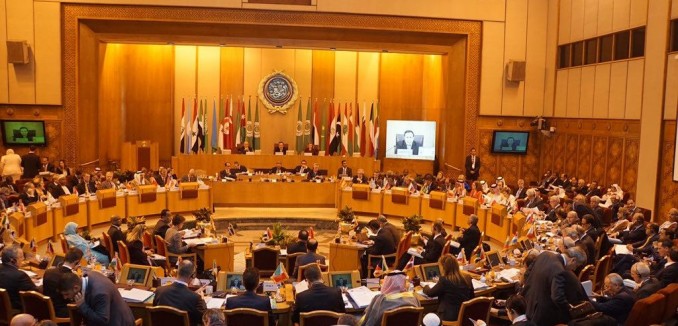The Arab League held an emergency meeting in Cairo on Sunday and issued a resolution that heavily criticized Iran and Hezbollah.
Speaking at the meeting Saudi Arabia’s Foreign Minister Adel Jubeir said his country “will not stand by and will not hesitate to defend its security” in the face of Iranian “aggression.” “Any leniency in dealing with their policies would only encourage them more, so we must stand together,” the Saudi Foreign Minister added.
Bahrain’s Foreign Minister, Sheikh Khalid bin Ahmed Al-Khalifa, said the Iranian-backed Hezbollah is “Iran’s biggest arm in the region at the moment” and is in “total control” of Lebanon.
Arab League Secretary General Ahmed Aboul Gheit said the Arab nations were “not declaring war on Iran at this stage,” but intended to “brief” the matter with international organizations, including the United Nations Security Council.
He said that “Iranian threats have gone beyond all limits and pushed the region into a dangerous abyss,” but gave no details on how Arab states intend to counteract Iran’s regional activities.
The foreign ministers said Arab telecommunications satellites would ban Iranian-financed television stations, which they claim provoke sectarian and ethnic tensions and pose a threat to security.
The Arab League also accused Hezbollah of “supporting terrorism and extremist groups in Arab countries with advanced weapons and ballistic missiles”. It said Arab nations would provide details to the UN Security Council of Iran’s violations for arming rebels, including the Iranian-made ballistic missile which was fired by Yemeni Houthi rebels and intercepted near Riyadh two weeks ago.
In response to the resolution, Iranian Foreign Minister Mohammad Javad Zarif told state media, “unfortunately countries like the Saudi regime are pursuing divisions and creating differences and because of this they don’t see any results other than divisions.”
Tensions between Saudi Arabia and Iran have recently heightened after Lebanese Prime Minister Sa’ad Hariri resigned on November 4 while in Saudi Arabia, citing Iran’s “grip” on his country and threats to his life.
(via BICOM)
[Photo: BICOM]




